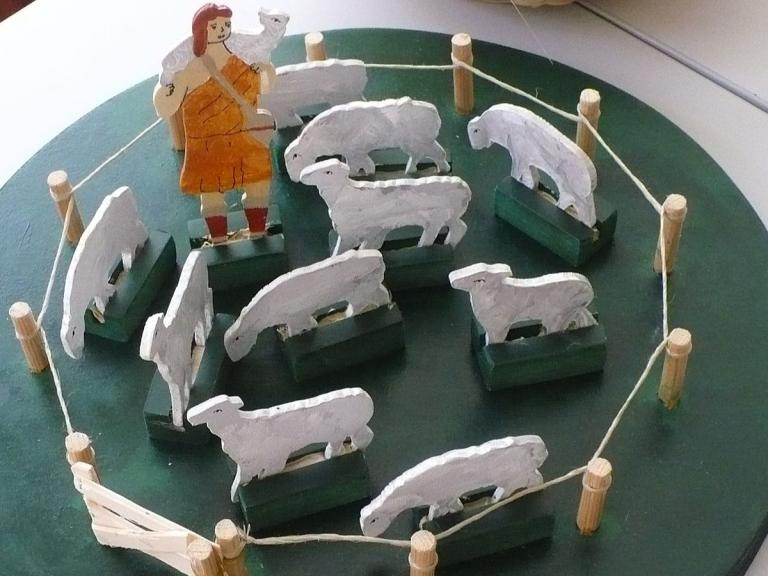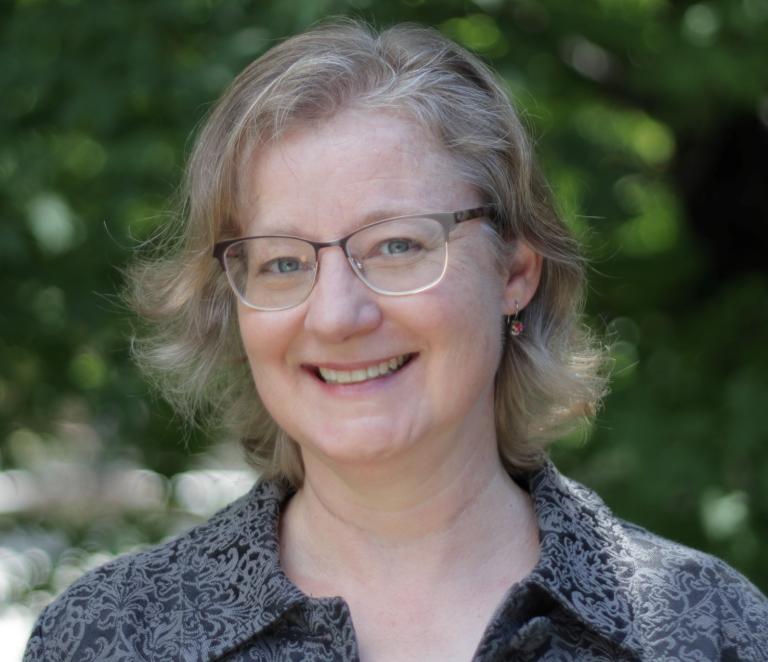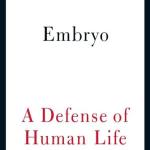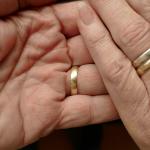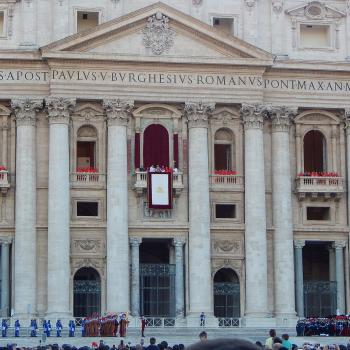It’s no surprise that I didn’t agree with everything in Rachel Gross’s article “Women in Menopause are Getting Short Shrift” at The Atlantic . As a woman of a certain age I was naturally curious how I might be getting shortchanged (I can give you a list of my own), and even after realizing the article was about how transgender hormone and surgical interventions provided insight into gynecology, I was open to the reality that one can gain wisdom in the most unlikely spheres.
Obviously as a Catholic I hold in common with many feminists, conservatives, scientists, and ordinary people that one cannot and should not attempt to change one’s sex. Also as a Catholic I firmly believe that medicine can and should be used to provide relief from distressing symptoms and harmful disorders. Given the extreme sacredness of the sexual act between husband and wife, of course a good physician will want to help men and women whose health problems are hindering that faculty.
I do think caution is warranted in prescribing hormone replacement to menopausal women. Though I would rather not be experiencing the drop off in muscle strength that plagues older men and women, I am concerned that toying with hormones might sabotage other aspects of geriatric health. I suspect that for most older patients, the many remarkably effective nutrition and fitness (including prescribed physical therapy) interventions are the better route, and that hormonal treatments are best reserved for situations where a clear medical disorder is present, above and beyond the ordinary annoyances of normal aging.
[Update: For an alternate opinion, here’s an interview with Dr. Mary Claire Haver, making the argument in favor of hormone replacement therapy after menopause. She makes some strong arguments that deserve serious consideration. Now continuing with the original essay . . .]
In those cases, though, I’m thrilled to see that medicine is advancing past a reductionist dichotomy of “male” and “female” hormones, and instead looking at balancing human hormones in accordance with each sex’s distinctive physical needs.
I say all that as a preface to our topic today, which underlies the linked article: How does the Christian reality of stewardship differ from an ownership-based philosophy of caring for our bodies — or anything else?
Stewards Report to a Higher Authority
I was barely able to pin down what was so illuminating in Gross’s article, but caught glimpses of it in quotes like these, emphasis mine:
- “she began consultations by asking each patient what they wanted from their body”
- “Taking estrogen, she tells those patients, “doesn’t mean you’re not who you want to be,” just as taking testosterone wouldn’t change a menopause patient’s gender identity.”
- “But it too can be an opportunity for a person to make choices about what they want out of their changing body.”
Nothing particularly nefarious there, in a general way of speaking. Nothing wrong with recognizing there are things you’d like to have!
What I realized on deeper reflection though is that the real divergence in Christianity is something much more fundamental: I am not the ultimate owner of my body. My feelings and desires are powerful information, but they aren’t the final say in what I should do with myself.
The reality that Christians and many other religious people acknowledge is that our bodies are gifts from God, and that we are responsible to God for caring for and using our bodies in the way that God is calling us to act. We are stewards reporting to a higher authority.
Stewards Have a Mandate of Authority
That said, the common parlance in those quotes above reflects a reality of what authority I do have over my own body. As an adult capable of thinking and choosing for myself, it is I who have been given the authority, by God, to direct how my body should be used and cared for.
The language of personal freedom is correct to the extent that it recognizes that human beings are meant to each carry out our own writ with regard to our well-being.
All Authority Has Limits
My favorite treatment of the Christian understanding of the rights and limits of stewardship authority is Pope Leo XIII’s encyclical on capital and labor, Rerum Novarum.
Here’s a one-sentence summary of the big idea with respect to human autonomy: People should be left free to manage their own affairs, with government authorities only stepping in if the individual is abusive or negligent.
Men and women of goodwill can of course disagree over what counts as abuse and negligence, even when working from the same moral code. Rerum Novarum has a few choice comments on what counts as abusive behavior in employers, to clear up what the limits of authentic freedom are with regard to wages.
But let us not get dragged down by an attempt to establish a prescription-limit on every kind of human authority.
What we need to understand about Christian stewardship of our bodies (or anything else) is that although I have the freedom and authority to make decisions about what to do with my body, it is God whom I am serving. God is the loving, cherishing, all-good Giver of my self, and my commission is to figure out how to best live out the calling that He has prepared for me.
Stewardship is Sobering
If I were to outline a rough progression from ownership to stewardship, it might look something like this:
- Anarchy: I can do whatever I want with my body, I am its absolute ruler. If it’s in my power, it is my right. I need not defer to anyone else, ever.
- Secular Ownership: I can do whatever I want with my body within certain bounds set by an earthly authority (moral, philosophical, legal, social, scientific . . .) I acknowledge as valid.
- Christian-branded Ownership: I can do whatever I want with my body within the limits set by the Bible, Church, or other divine rule-giver whose authority I acknowledge as valid.
- Christian Stewardship: Of all the things that could be morally acceptable to do with my body, I am responsible for discerning God’s call for me specifically, and I am liable to judgment if I choose personal gratification over serving the higher purpose God intends for my life.
Stewardship is a significant leveling-up from an ownership-based understanding of what we do with our selves and our lives.
The caution for Christians is that we very easily fall into the complacency of ownership-based thinking, and this is true of every generation.
When we are immersed in a heavily-Christian culture, we easily default to thinking that as long as we are saying our prayers, giving alms, and following the Ten Commandments then we’re probably fine.
When we are Christians living in a mostly non-Christian culture, we can be so hyper-aware of how different we are just for those prayers, alms, and moral laws that we fail to notice we are still deeply saturated in a philosophy of total self-determination.
It is hard to radically change our thinking about all the big and little decisions we make in life. And yet that is what God is calling us to do!
Stewardship is Exhilarating
Ultimately, though, life without a higher purpose becomes empty and meaningless.
Thus even among atheists and others who don’t have any religious mandate to do so, we see many people of good will decide to live lives of love, service, and self-sacrifice. Deep in the human heart, we know that we will never be truly happy living only for our own self-gratification.
What makes Christianity infinitely more meaningful is that all the beauty and nobility of an earthly life well-lived is meant to have cosmic significance. Every act of heroism, every act of stewardship, has divine, eternal, Kingdom-of-God consequences.
Stewardship is a Gift
Way back in the Garden of Eden, Adam and Eve were given the original writ of stewardship. Every day they walked with God, until one day they didn’t.
Like Adam and Eve, we too often find that doing those few simple things God asks of us is more than we can pull off. We do what we know we should not, or we neglect to do what we know we should.
The tendency in the face of our own failures is to withdraw into ownership-mode. As long as I’m living within the basic rule set, and I confess my sin when I slip up, then I’m good. Whew.
God doesn’t want us hiding there. He wants us to rediscover that stewardship role we were created for. But when we try, we once again realize this is too big! Well yes, it is.
God walked with Adam and Eve in the garden because partnership with God is essential to the gift of stewardship. It’s not the gift of “Okay humans, you go do this thing, I’m busy.” It’s the gift of God wanting us to live His Divine Life with Him.
When I step out of ownership-mode and into the gift of stewardship, I’m stepping into a partnership where the limits of my abilities are okay, because I’m responsible to the Person who designated those limits, and Who is willing and able to use them to carry out His divine plan.
Photo: Wooden figures from the Catechesis of the Good Shepherd, via Wikimedia, CC 3.0.


